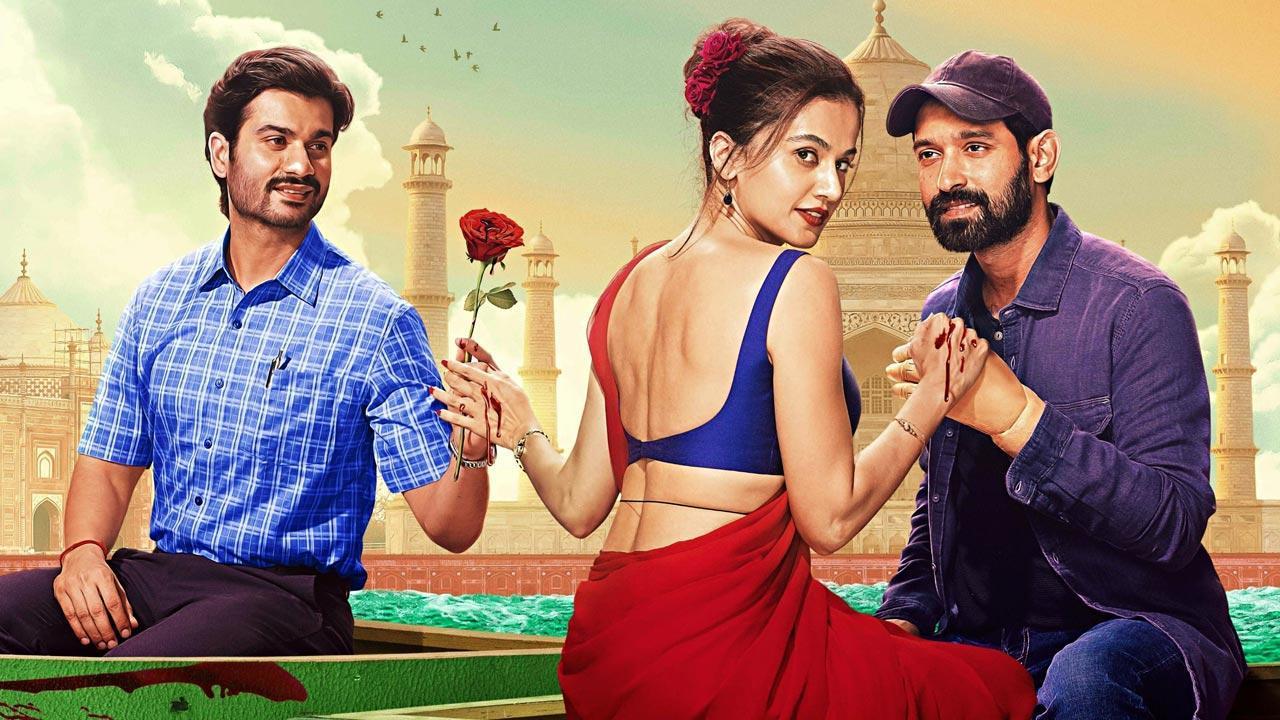
Director Jayprad Desai has made quite the name for himself by effortlessly oscillating between diverse genres—from the sports biographical drama “Kaun Pravin Tambe” (2022) to the gripping spy thriller “Mukhbir” (2022). But his latest venture, the Netflix romantic thriller “Phir Aayi Hasseen Dillruba,” starring Taapsee Pannu and Vikrant Massey, showcases Desai’s willingness to dive into more murky and exhilarating storytelling waters.
“What attracted me was the almost recklessness of its world. It’s so forbidden that it is exciting, which is also what pulp offerings are. The film’s sheer audacity drew me to it, even though it was far removed from who I am,” Desai shares. The film continues the saga of Pannu’s Rani and Massey’s Rishu, charting their dangerous escapades as they elude the police, only to encounter new turmoil brought by the character Abhimanyu, played by Sunny Kaushal.
Desai admits that representing the complex, often flawed human condition was a priority for him. Delving deep into the script written by Kanika Dhillon, his primary goal was to humanize the characters, despite their obvious imperfections and deceptive nature. “It’s ideally a love story between toxic characters. To humanize characters in a pulp is a challenge because deep down, however colourful they may be, they are people like us. It’s the devilish side of us that they beckon. So, I was sensitive to that. I wanted to explore the humanity of these seemingly outrageous people,” Desai reflects.
He emphasizes the danger of letting the story slip into the realm of the completely unreal, given its audacious premise. “We were dealing with something so outrageous that the fear was that we could get carried away and make it completely unreal. I knew that if I was able to keep them grounded, I’d be able to strike a chord with the audience. They are worryingly easy to root for. And that’s the most exciting part about them,” he notes. The director underscores the importance of celebrating these flawed characters unapologetically, emphasizing that the goal is not to defend their actions but to make them recognizably human.
This complex characterization required skilled acting, something that Desai’s ensemble cast easily brought to the table. Sunny Kaushal, in particular, stood out as both a new character and a new addition to the franchise. “These actors were absolutely delightful.
. This is the process you enjoy the most. It’s a fun jugalbandi that goes on between you and the actors. Taapsee and Vikrant have been there since the first film, but Sunny was new and something to watch out for. Both he and his character had immense potential,” Desai recounts.
The actors’ ability to embody their roles, lending them shades that range from desire to obsession and helplessness to deviousness, was paramount. Desai commends their talent, stating, “Taapsee and Vikrant have established their characters, but it was exhilarating to see Sunny, who like me, was new to this world. They took their roles and made them uniquely their own.”
As Desai carved out the narrative of his latest film, he faced a specific challenge: making sure the story remained engaging without losing touch with reality. He worked closely with his actors, employing what he describes as a “fun jugalbandi,” a harmonious back-and-forth dynamic essential to the filmmaking process. This collaborative creativity ensured that the characters, no matter how extreme their actions or deceptive their personalities, felt grounded in reality.
Phir Aayi Hasseen Dillruba is distinctively characterized by its pulp fiction essence—a genre marked by sensational, and often lurid, stories that refuse to shy away from human imperfections. Such a narrative canvas provides fertile ground for exploring the more sinister sides of human nature. “It’s the devilish side of us that they beckon. So, I was sensitive to that. I wanted to explore the humanity of these seemingly outrageous people,” Desai explains.
Desai’s focus on depicting the humanity within these characters aligns perfectly with the broader ethos of pulp fiction—celebrating the flawed, the imperfect, and the morally ambiguous. “They belong to a world where everyone is flawed. We have to celebrate that unapologetically because that’s what this world represents. We aren’t defending their action. The idea is to make them human,” he asserts.
For the director, the success of “Phir Aayi Hasseen Dillruba” lies in its ability to resonate with the audience, compelling them to root for the seemingly unrootable—a testament to the intricate and often contradictory facets of human nature. By grounding the otherwise extraordinary storyline in relatable human emotions, Desai has crafted a film that mirrors the complexities of real life, capturing the essence of its flawed characters with an authenticity that transcends the screen.












